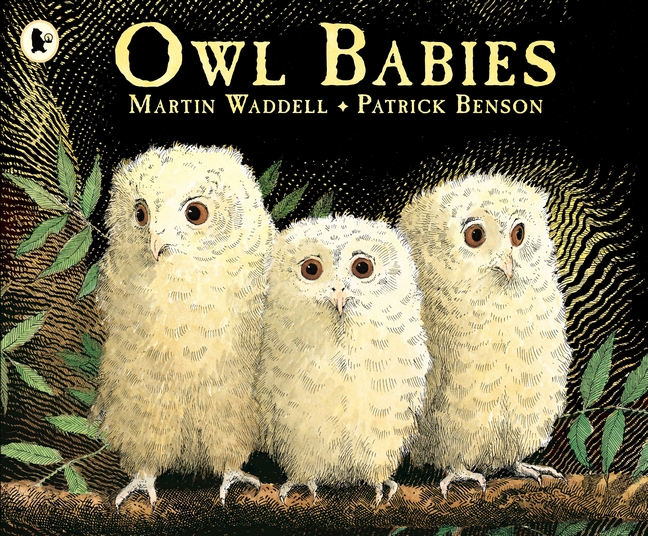'Owl Babies' by Martin Waddell
In this story, three owls live in a tree with their mother. One night, the three owls discover that their mother is gone and are shocked and upset.
They want her to come back, but she doesn’t.
The little owls wonder where she has gone and feel quite scared, until she returns, to their great relief.
This is a very helpful book to read to young children to explore very ordinary feelings around separation.
 Sarah and Percy try terribly hard to be ‘brave’ and are more able to keep their mother in mind as someone who has gone to do something helpful – in this instance to gather food. For them, their mother has not disappeared, just because she is not with them (although interestingly they can only imagine that she has left them, if it is in the service of caring for them – rather than fully acknowledging that she may have an independent existence, such as seeing a friend or a Daddy owl!) but Bill seems to express the longing for her as a lost object.
Sarah and Percy try terribly hard to be ‘brave’ and are more able to keep their mother in mind as someone who has gone to do something helpful – in this instance to gather food. For them, their mother has not disappeared, just because she is not with them (although interestingly they can only imagine that she has left them, if it is in the service of caring for them – rather than fully acknowledging that she may have an independent existence, such as seeing a friend or a Daddy owl!) but Bill seems to express the longing for her as a lost object.
This can be a helpful way of speaking to young children about the idea of when people are gone it is possible to hold onto them in our minds, although it is tricky.
The owls begin to wonder if a fox may have attacked their mother, as if the outside world is now a dangerous place full of aggression. One wonders at this point, about the owls’ own aggressive feelings with their mother – that perhaps they also feel cross that she has left them. The owls stick together as a way of managing their feelings of loss, which again can be helpful to think about with children – how can they feel better when they are missing someone? These owls are able to comfort one another because they can acknowledge their feelings together as a group.
When the mother owl returns, she wonders what all the fuss was about, which perhaps resonates for many parents. For parents, an absence may be brief and perhaps not fully registered, but for children, the same absence can be experienced very differently. This book captures something of the raw feelings of vulnerability during separations.

